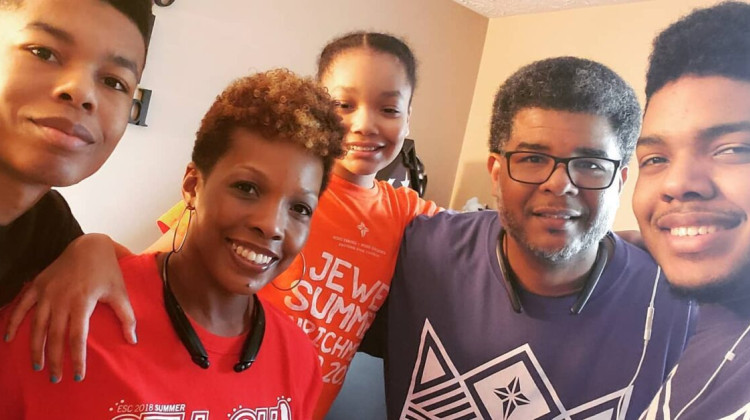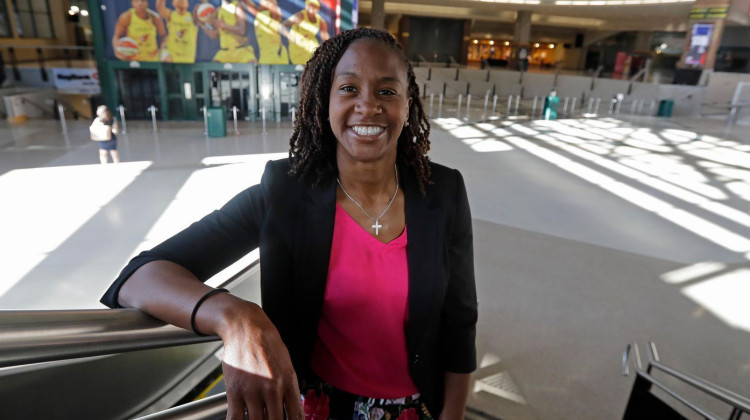Elijah McClain was a 23-year-old Black man killed in 2019 as a result of being illegally injected with 500 mg of ketamine by paramedics after being forcibly detained by police officers in Aurora, Colorado.
He went into cardiac arrest and died six days later in the hospital.
His story garnered national attention with video footage of his last moments highlighting behaviors that people deemed on the spectrum.
“I am an introvert. Please respect the boundaries that I am speaking. I’m going home,” McClain would tell Aurora police who were called to the scene of him walking down the street from a local Shell gas station.
A man called 911 on him because he looked “suspicious.”
McClain had just finished purchasing soft drinks. He was wearing a face mask that his family lawyer would say was to keep his face warm since he had anemia.
The intersection of autism and tragedy
In surveillance footage at the gas station, he is seen bowing to a man behind him after paying for his items. His family would say this was his signature, “gratitude bow.”
McClain did not like being touched.
He was wrestled to the ground and choked after resisting officers.
“My name is Elijah McClain. I was going home. That’s what I was doing. Just going home. I’m an introvert and I’m different. That’s all. I’m so sorry,” said McClain while held down on the ground by the police.
Officers would tell paramedics that he needed the ketamine because of his strength assuming he was on drugs.
Just over 20 minutes after the first officer contacted McClain, the 23-year-old did not have a pulse. He would be resuscitated and taken to the hospital but declared brain dead three days later.
McClain’s story garnered a lot of interest in living with autism while being Black.
The intersection of autism and race
Kimacka Randle is the co-founder and president of the Black Autism Support Society, a Midwest organization that started in 2021.
She and her husband have three children who are all diagnosed with autism.
“We deal with generational trauma anyway, but our kids don’t know how to look for those signs. They don’t know how to determine if someone else is safe for them,” said Randal.
“We have to know how to act in the store and how to act when you see the police and people with autism that are also Black don’t know how to manage their bodies which could put them in dangerous situations.”
For the first time last year, autism was being diagnosed more frequently in Black and Hispanic children than in white within the U.S. according to the Centers for Disease Control and Prevention.
Autism is a developmental disorder that impairs the ability to communicate and interact.
There are many possible symptoms, many of which overlap with other diagnoses. They can include delays in language and learning, social and emotional withdrawal, and an unusual need for routine.
For decades, the diagnosis was given only to kids with severe problems communicating or socializing and those with unusual, repetitive behaviors.
But around 30 years ago, ″autism spectrum disorders,” was a term coined to highlight milder, related conditions.
Black people receive later diagnoses for autism
“Insurance companies weren’t providing coverage for speech or anything like that to help them [her children] developmentally. We really struggled to have our families understand. In the Black community it really wasn’t talked about or accepted,” said Randle.
“We had a hard time with just trying to stay married and raise our kids until we started connecting with other families like ours. We saw the intersectionality of race and autism as its own challenge.”
According to one of the largest U.S. studies to date on the topic, Black children, on average do not get diagnosed with autism spectrum disorder until three years after their parents have initially voiced concerns to their pediatrician.
Randle said this creates outcomes that are not as great for their children, because early diagnosis is key.
There has been a delay in diagnosis for the Black community.
“One there’s a lack of parent education. We don’t know the signs, we don’t know what to look for, we don’t know that if we suspect something we can ask the school system or some other agency to test our babies for us. We don’t know what an IEP (individualized education program) is or how to request any of that,” said Randle.
“The second reason is disparities in health care. Sometimes you may go to your pediatrician and say, ‘I think something’s wrong or something’s not right,’ and they may either blow you off or they’ll say, ‘Oh, you know. They’ll talk eventually’ or, ‘Boys talk later than girls.’”
Stigma in the Black community for autism
There is also a stigma in the Black community where families feel like they have to hide what is deemed mental health issues.
Autism is not a mental health problem, but a developmental disorder.
McClain’s family would later come out and say that he was never diagnosed with autism. They have said he was anemic and sensitive, but never if he had a disability.
“We’ve had a teacher that wanted to hold our son back and have him repeat the first grade. She thought she knew what autism would look like thinking it was a monolith and it’s not. We’ve had family members who thought we spoiled our children when they needed a spanking,” said Randle.
“We had to basically stop going to large family gatherings because it was just very stressful and then we didn’t want to have to keep explaining why we weren’t spanking because it wouldn’t help.”
These experiences prompted the Randles to start helping improve outcomes for other families like theirs and also help develop a sense of community.
They advocate across the state for autism awareness while offering resources and community.
Veronica Napier is the CEO of Stepping Stones Behavioral Solutions that offers applied behavior analysis therapy services for individuals ages 2-21.
For those past the age of 21, clients can become a part of a waiver program to be offered behavior consulting services.
Napier said her company works a lot with adults who have high functioning autism.
Black adults living with autism
“An adult with autism typically hyper-fixates on certain topics. People on the spectrum typically lack social awareness. So, sometimes they will kind of go on and on almost in an obsessive manner regarding the topic,” said Napier.
“Sometimes they will engage in stereotypic behaviors or repetitive behaviors such as rocking, humming or hand flapping. That’s when they move their hands back and forth. They do that to kind of self-regulate.”
Napier said that the spectrum is huge.
A lot of high functioning adults with autism may have OCD behaviors.
They can come off more blunt in conversations by being direct and concise.
“If you change your hair, they might say your hair is different today vs saying they like your hair but if you ask them if they like your hair then they’ll answer that,” said Napier.
“As you travel down the spectrum, you’ll see those individuals who will need a lot more social cues when it comes to conversational skills. Sometimes if they have jobs, they’ll need a little bit more help when it comes to vocational training.”
Anything that might knock off their routine can frustrate them or cause them to feel like everything is knocked off.
They will cover their ears or have a lot of sensory issues.
“Black people will say, ‘Oh, they’re just funny acting,’ or ‘They don’t like other people like.’”
They may not be socially motivated to connect with others.
Autism awareness
Elijah McClain’s story inspired a movement that transformed how society perceives and supports individuals with autism, Especially Black people. Through advocacy, education, and community support, Randal and Napier’s missions are to move to a more inclusive and compassionate world.
“Our daughter is not driving yet, but our two boys are Black men that have driver’s licenses, and they drive. So, just having that conversation with them or being concerned about them being pulled over by police,” said Randal.
“We’re very specific in explaining to them. No speeding. Wear your seatbelt. We tell them all of these things because, I know for our middle son, he has serious sensory issues. He hates like the sounds of sirens, and we don’t want that to create a really dangerous interaction for him.”
Contact staff writer Jade Jackson at (317) 762-7853 or by email JadeJ@IndyRecorder.com. Follow her on Twitter @IAMJADEJACKSON.
 DONATE
DONATE









 Support WFYI. We can't do it without you.
Support WFYI. We can't do it without you.